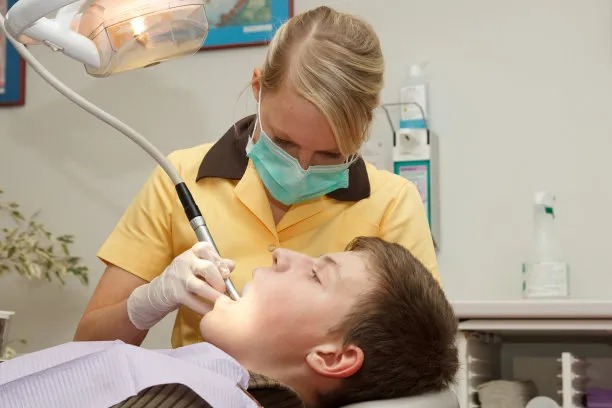Summary: Extracting a tooth is often necessary for optimal dental health, yet the process involves various challenges and emotions for both patients and dental professionals. This article discusses the key aspects of tooth extraction, including the need for extraction, the emotional responses of patients, the procedural requirements, and the aftercare essential for recovery. Addressing these factors can help alleviate fears and ensure a smoother experience for those undergoing tooth extraction.
1. Understanding the Need for Tooth Extraction

Tooth extraction may be required for several reasons, including severe decay, overcrowding, or periodontal disease. Recognizing when extraction is necessary can significantly influence a persons dental health in the long term. Such decisions should be made in consultation with a qualified dentist, who can evaluate the condition of the teeth and surrounding tissues.
In some instances, wisdom teeth often become problematic, leading to extraction to prevent further complications. Patients should be aware that the extraction of problematic teeth can improve their overall dental health and prevent issues like infection or misalignment.
Additionally, understanding the underlying reasons for extraction helps patients mentally prepare for the procedure, reducing anxiety and encouraging them to ask questions or voice concerns during consultations.
2. Navigating Emotional Responses Before Extraction
Experiencing anxiety before a tooth extraction is common; the mere thought of a dental procedure can evoke fear. Patients must acknowledge their feelings, which often stem from previous negative experiences or fear of pain. Engaging in open dialogues with dental professionals can help mitigate these fears.
It is crucial for dentists to provide reassurance and detailed information about the process. Knowing what to expect can significantly reduce anxiety. Some practices even offer sedation options to alleviate stress, making the procedure more comfortable.
Support from friends and family also plays a vital role in the emotional landscape surrounding a tooth extraction. Having a trusted companion can provide comfort and help distract patients, allowing them to focus on the positive aspects of the procedure.
3. Understanding the Extraction Procedure Itself
The actual tooth extraction process begins with a comprehensive examination and imaging to assess the tooths condition. Dentists will outline the procedure and whether local or general anesthesia will be required. Understanding the procedure steps can also help dispel anxiety and uncertainty.
During the extraction, dentists utilize specific instruments to ensure the process is efficient and as painless as possible. For most patients, the local anesthetic numbs the area, reducing pain significantly. A proper understanding of the techniques used can empower patients, allowing them to feel more comfortable.
Post-extraction care is just as crucial as the procedure itself. Dentists will provide detailed instructions on how to manage pain and swelling and what foods to consume. Recognizing that immediate aftercare plays a crucial role in recovery can help patients feel more in control during their healing process.
4. Emphasizing Post-Extraction Care for Recovery
Once the tooth is extracted, focusing on aftercare is vital for ensuring a smooth recovery. Understanding the importance of following your dentists advice regarding rest, diet, and pain management can greatly affect the healing timeline. Patients should prioritize soft foods and hydration, which help to minimize discomfort.
Managing pain and swelling through prescribed medications and natural remedies is essential. Ice packs, for instance, can help reduce swelling, and over-the-counter pain relievers can assist in managing discomfort. Patients should be vigilant in monitoring their recovery and reporting any unusual symptoms to their dentist.
Finally, follow-up appointments are critical for ensuring that the extraction site heals properly. These visits allow the dentist to monitor healing and provide additional care if necessary. Understanding that recovery is a multi-step process can help patients feel more engaged in their dental health journey.
Summary:
In conclusion, navigating the challenges and emotions involved in tooth extraction is crucial for achieving optimal dental health. Understanding the need for the procedure, acknowledging emotional responses, grasping the extraction process, and emphasizing post-extraction care are essential components that contribute to a positive experience.
By addressing these areas, patients can better manage their expectations and feelings surrounding tooth extraction, leading to more successful outcomes. Remember, dental health is an essential aspect of overall well-being.
This article is compiled by Vickong Dental and the content is for reference only.
Vickong Dental
Vickong Dental is a large medical group established in Hong Kong in 2008 by professors from well-known medical universities in Guangdong and Hong Kong, as well as medical doctors from key national '985' universities (including Master's supervisors and senior professors). The chain of branches brings together expert dentists with PhDs and Master's degrees from Hong Kong and Mainland China, committed to providing high-quality dental treatment.
"Vickong Dental Practices the University Motto of 'Healing and Serving Society,' with a Stable Operation for Sixteen Years. It Has Been honored with Hong Kong Enterprise Leaders's Choice,' and is a Global Trusted Implant Center for the Nobel Implant System. Recommended by Hong Kong Metro Broadcast and Guangdong Television, it Serves Customers from Over Thirty Countries and Regions, Gaining the Trust and Favor of Citizens from the Guangdong-Hong Kong-Macau Greater Bay Area and Surrounding Cities.

Thousands of customers' unanimous praise
The most recognized and highly recommended dental service by customers in the Guangdong-Hong Kong-Macau Greater Bay Area
We Ensure You Receive Detailed Care and Attention Here
Hong Kong standards, Shenzhen prices, Your Trusted English-speaking dentists

Vickong Dental Medical-Grade Instrument Disinfection Process
Vickong Dental Medical-Grade Instrument Disinfection Process

Vickong Dental Chain: A Warm and Comfortable Environment for Treatment






Appointment Hours

Q&A
Why choose Vickong Dental?
Vickong Dental practices the university motto 「Medicine to Benefit Society」, with each branch bringing together highly qualified dentists with doctoral and master’s degrees from Hong Kong and the Mainland, and has maintained seventeen years of steady operation。Recipient of 「2024 Hong Kong Enterprise Leaders Brand」, 「2025 Hong Kong Enterprise Leaders Brand」, a Nobel Biocare Global Trusted Implant Center, and a brand recommended by Metro Radio Hong Kong and Guangdong TV。
To date, we have served customers from more than thirty countries and regions,earning exceptionally high word-of-mouth recognition and trusted recommendations from residents across the Guangdong-Hong Kong-Macao Greater Bay Area and surrounding cities
We have eight major branches in Zhuhai、Shenzhen,and a consultation and service assurance center in Hong Kong,so you can book a free consultation at any time for any questions,which is very reassuring.
If I do not accept the quotation after the CT scan, will I be charged??
No! As long as the actual treatment has not started, you will not be charged any fees.
Will there be any additional charges during the treatment process?
No, there won’t be any additional charges. Before treatment begins, we will clearly explain the treatment plan and its corresponding fees. Only after the patient agrees and signs the consent form will we proceed with the dental service.
Can I pay in Hong Kong dollars?
Yes. Vickong Dental accepts payment in Hong Kong dollars. The amount will be converted based on the exchange rate of the day, and the applicable rate will be clearly communicated to you in advance.
Can I reschedule my appointment at any time?
Yes. Please contact us via **WeChat** or **WhatsApp** as early as possible, providing your original appointment time and details, along with your preferred new date and time slot for rescheduling.













